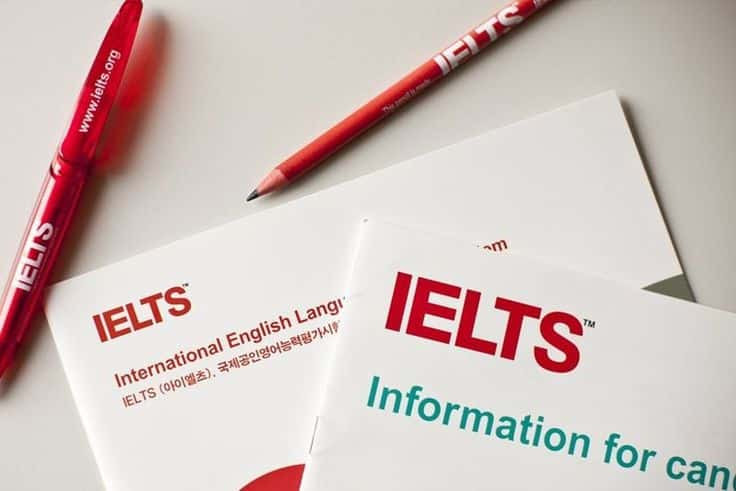Table of Contents
Add a header to begin generating the table of contents
Become a Confident Japanese Speaker: Discover the Top Language Classes in Your Area
Have you ever dreamed of speaking Japanese fluently? Now is the perfect time to turn that dream into a reality. Whether you're a beginner or looking to brush up on your
Read More
Invest in your future: why your IELTS is Necessary

Everyone has a common question: What is IELTS, and why IELTS is necessary? In this article, we will explore this topic. IELTS helps you improve your language skills, giving you the confidence to communicate effectively in English.
IELTS is Necessary for Success

In today’s globalized world, communication makes every country and stage easy. English is one of the ways of communicating. So we need to be proficient in English. The exam through which your English proficiency is verified is called IELTS. In 1989, the IELTS exam was recognized worldwide as a measure of English proficiency. More than 11,000 organizations worldwide verify English communication skills through IELTS scores. Over 3.5 million people choose IELTS to open doors worldwide, and more than 140 countries accept IELTS scores. IELTS is designed to assess your reading, writing, speaking, and listening abilities in English. IELTS tests your English skills in reading, writing, speaking, and listening.
Importance of IELTS for international students

IELTS not only helps students for admission but also helps them adapt to the environment in a foreign country, such as understanding lectures, participating in discussions, writing academic papers, and talking and understanding with natives.
Many students aspire to work in their host country after graduation, and a good IELTS score can significantly enhance their job prospects.
Benefits of having a good IELTS score

A good IELTS score helps you achieve your dreams academically and professionally. If you dream of joining the world’s top university, a good IELTS score will help you fulfill your dream. Your good communication skills in English are a good opportunity in the globalized job market. A good IELTS score can make you a more attractive candidate for international companies or jobs requiring working in English. A high IELTS score increases the opportunity for immigration to countries like Canada, Australia, and New Zealand.IELTS offers the opportunity to improve life and career in English-speaking countries.
How IELTS is used for immigration purposes

IELTS is widely recognized and accepted by immigration authorities worldwide as a measure of English language proficiency. Many countries, including Canada, Australia, New Zealand, the United Kingdom, and the United States, use IELTS scores as part of their immigration requirements.
For example, Different immigration programs in Canada have IELTS score requirements. Suppose you are seeking permanent residency through Express Entry, for instance. In that case, you need an IELTS score of at least six । It is important to note that the IELTS test is the universally accepted standard for proof of English proficiency for UK visas and immigration.
In Australia, the Department of Home Affairs accepts IELTS scores for visa applications, including student visas, skilled migration visas, and employer-sponsored visas.
New Zealand visas require IELTS scores, and the requirements vary depending on the visa type. A good IELTS score boosts your immigration chances.
In the United States, IELTS helps with university admissions, But the IELTS score is unimportant for immigration. If you want to prove your English skills to immigration officers, an IELTS score will help.
So, it can be said that IELTS is key for immigration!
IELTS preparation tips and strategies


For Any Inquery: (880) 1977-706066
By submitting my data I agree to be contacted
Top 20 world-ranking best Japanese universities for international students
Our parents teach us from childhood in the best educational institutions for our educated life and better future. From childhood, we all students give priority to the best for getting an education. Japan is a country where all universities provide good education. Because Japanese universities teach practically,
Read More
Table of Contents
Add a header to begin generating the table of contents
Open the Doors to Education to Studying in Japan After 12th Grade
After passing H.S.C., are you thinking of studying abroad now? Is Japan your dream country for higher education? If so, it will be one of your best decisions.
According to the latest data from
Read More
Table of Contents
Add a header to begin generating the table of contents
Can you study in South Korea without knowing the Korean language?
Koreans' mother tongue ranks 16th in the world. Currently, about 81 million people speak Korean. Their language is Hangeul. The Korean writing system's complexity makes it challenging for international students to master this
Read More
- Sakura Japanese Language Academy: located in Sylhet, Sakura Japanese Language Academy offers Japanese language n5 and n4 courses for those people who want to go to Japan for higher education.
Here are some tips to help you prepare effectively for the IELTS exam:
- Time Management: Manage your time wisely. You have 60 minutes to complete the reading section, So allocate your time based on the number of questions and passages.
- Vocabulary building: Vocabulary building is significant for getting a good IELTS score. You will improve your score if you use advanced vocabulary in all four tasks (listening, reading, writing, and speaking).
- Don’t panic if you don’t know: If you encounter a challenging question, don’t panic. Move on to the next one and return to it if you have time. It’s essential to keep a steady pace throughout the test.
- Seek Feedback: You can get feedback about practice tests and writing from a teacher, tutor, friend, or partner. If you take feedback this way, you can improve in some places and get a very good idea about this.
- Organized writing: The more you can write the writing task, the more you can score.
Repeating a word repeatedly: You must pay attention to whether you use the same word again and again, or your score can be lost. Try to use relevant words and advanced vocabulary.
Common challenges faced during the IELTS exam

Here are some common challenges faced during the IELTS exam:
- Time constraints: The IELTS exam has a specific time. Managing this specific time-effective challenge. Practice time management strategies, especially in the reading and writing sections. Practice time management strategies, such as skimming and scanning for the reading section and planning your essay before writing in the writing section.
- Understanding different accents: Different pronunciations in the listening section can be difficult to understand. So, listen to different types of audio to become familiar with the pronunciation and practice understanding different contexts.
- Writing under pressure: There is a specific time in the writing section of IELTS. So you have to practice more and more before the exam to finish writing on time for the exam.
- Nervousness during the speaking section: Students feel nervous in the speaking section, so they need to practice speaking English more with friends, family, or language partners.
- Understanding complex reading passages: The reading section in IELTS contains challenging academic and technical texts. Practice different text types and develop skimming, scanning, and main idea comprehension.
By recognizing these challenges and implementing effective strategies, you can overcome them and perform your best in the IELTS exam.
Best of luck on your IELTS journey!
